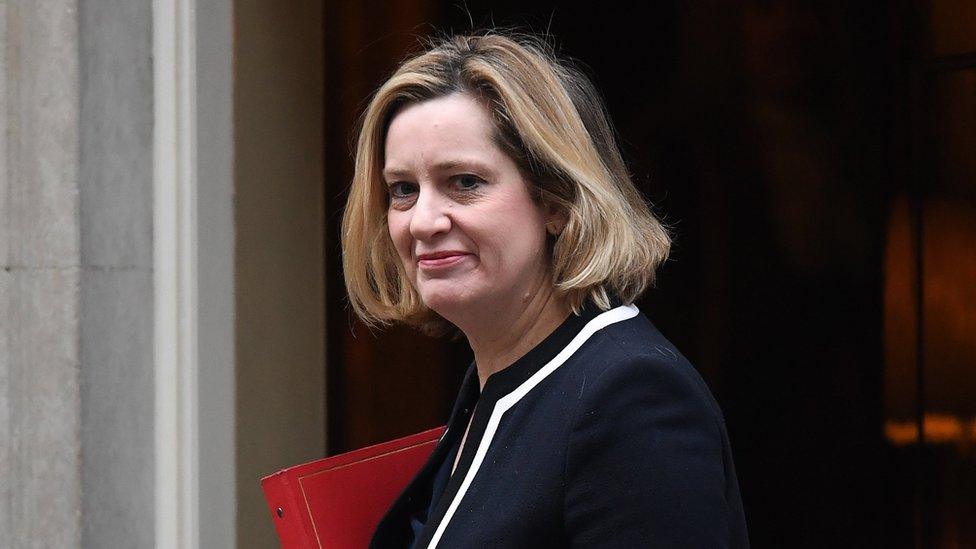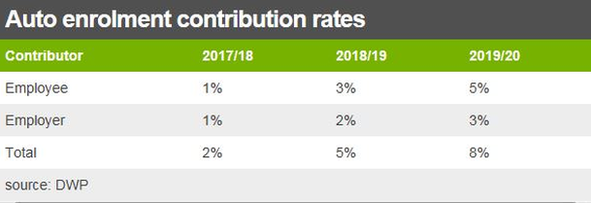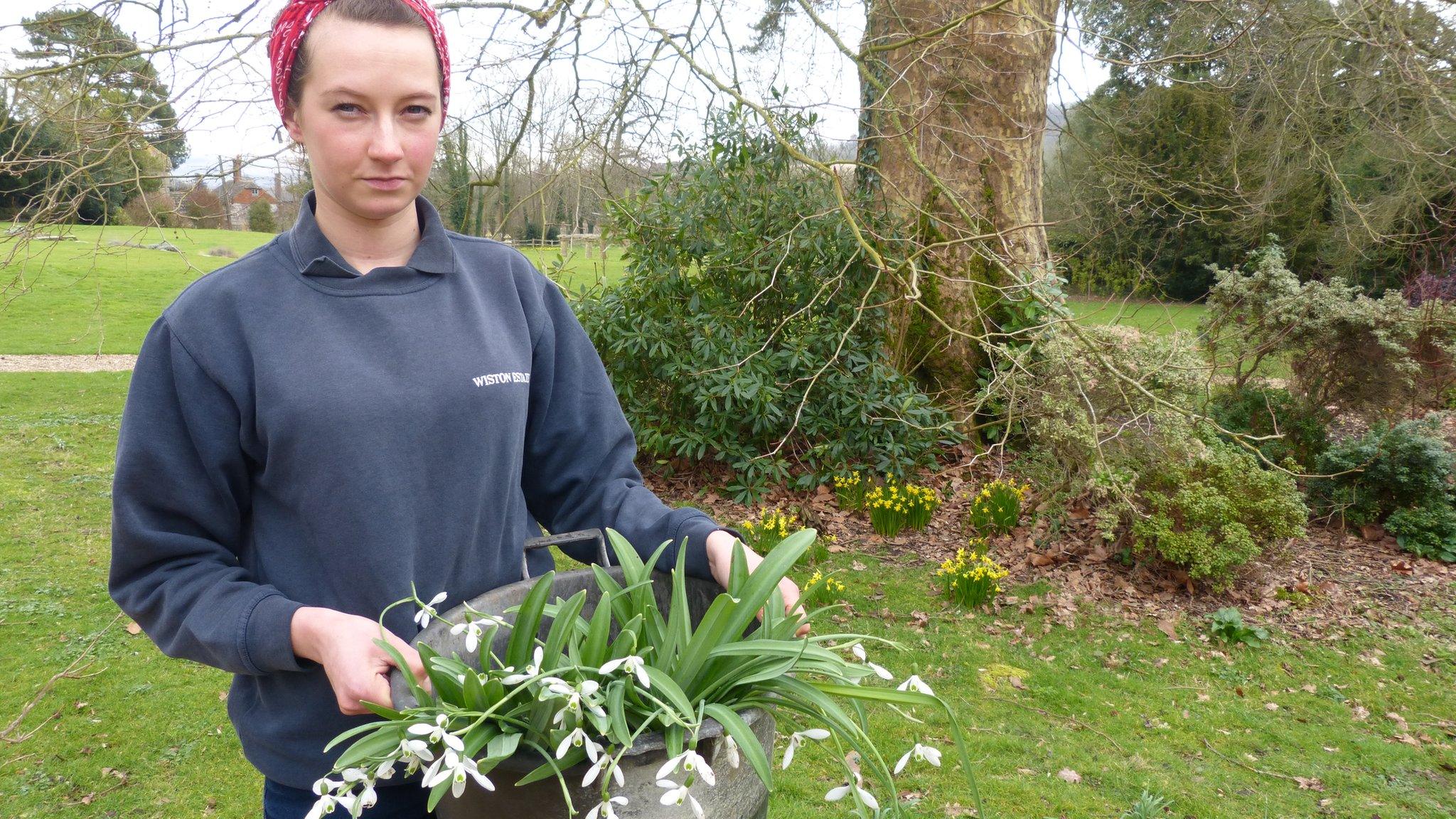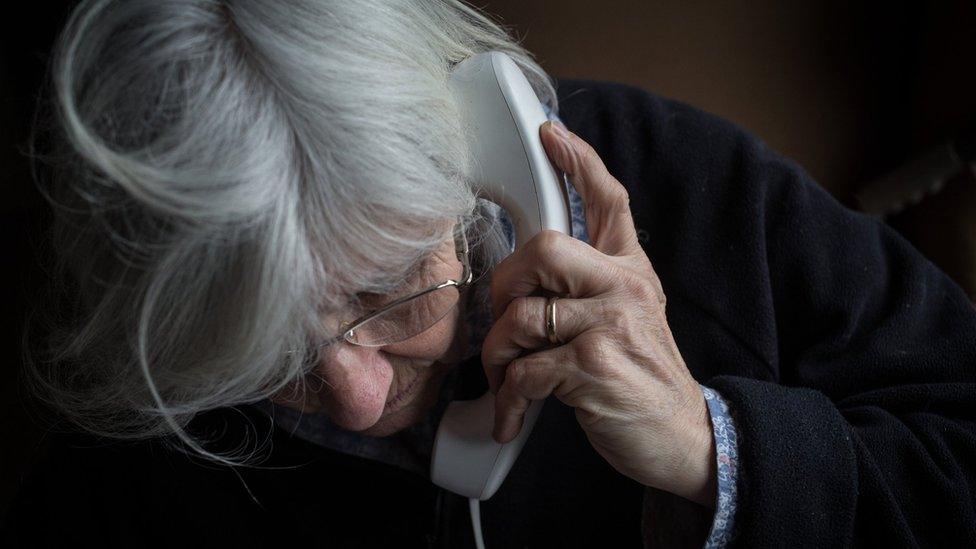Pension contribution hike to hit pay packets
- Published

Workers with auto-enrolment pensions will contribute 5% of their salary from April
Millions of workers could see their take-home pay fall in six weeks' time when the amount they have to pay into their pension pot increases.
Analysis for the BBC has examined how pay will be hit when higher contribution rates for those with auto-enrolment pensions kick in.
Since 2012, 10 million eligible workers have been automatically signed up to workplace pensions.
From April, their contribution will rise from 3% of their salary to 5%.
Tom McPhail, head of policy at the investment company Hargreaves Lansdown, said: "This is quite a significant increase relative to what they've been paying to date.
"This is going to affect up to 10 million people who've been auto-enrolled in the past few years, so the potential impact of this change is quite substantial."
The analysis carried out for the BBC by Hargreaves Lansdown suggests the annual take-home pay of someone earning £15,000 will typically be £49 lower, if they pay contributions on their entire salary.
Someone on £30,000 will take home £253 less, according to the calculations.
The hit to net pay could have been bigger, but a tax cut for most earners will soften the blow of higher auto-enrolment contributions.
The personal allowance is due to increase to £12,500 from April.
'Auto-enrolmaggedon'
Some in the industry worry lower take-home pay could lead people to opt out of saving for a pension.
The change coincides with uncertainty in the economy, leading some to dub the move "auto-enrolmageddon", although the industry is not expecting a big jump in opt-outs.
The government says it will closely monitor what happens.
The rate of people stopping saving into a workplace pension was just 0.7% in the three months following the first increase in contribution rates in April 2018, compared with 0.6% for the previous four years.
Speaking on a recent visit to an electronics factory, Work and Pensions Secretary Amber Rudd told the BBC: "I'm hopeful it won't have an impact because we need to encourage people to save more."
Addressing last year's contribution increase, she said: "Some people were nervous we would see saving drop off. It hardly happened at all."

Amber Rudd took over at the Department for Work and Pensions in November 2018
The government and the pensions industry regard auto-enrolment as a huge success.
"Anyone that can afford to stay in a pension absolutely should do so, as that money will come in useful for them later on," said Mr McPhail.
There is a widespread view in the pensions industry that workers' contributions may have to rise even further if they want a decent retirement income.
The work and pensions secretary said persuading people to save for their own pensions was "a really important change in the culture that we're seeing in the UK".

The law requires that, as a minimum, contributions are based on earnings between £6,032 and £46,350.
The government wants the first £1 of earnings to count towards a pension, and plans to introduce this change in the mid-2020s.
Employers' minimum contributions are also due to increase in April from 2% to 3% of a workers' salary.
- Published19 March 2018

- Published28 January 2019

- Published12 February 2019
